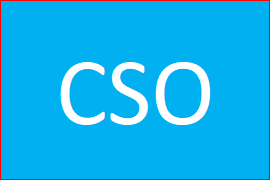Civil Society Organizations (CSO)
Wherever it is present, the Group acts in harmony with the society around it. Dialogue with stakeholders, including CSOs, is a source of wealth, creativity and cohesion.

Context
Civil society organizations (CSOs) are formal (eg: Non-governmental organizations or NGOs) or informal (eg: experts, opinion leaders) structures that express the expectations of society in social or environmental fields. They act in the general interest.
Their capacity to influence continues to grow. They have legitimacy in public opinion.
Functions and Principles
The Group has created within the Public Affairs (PA) department a position that is responsible for dialogue with CSOs at the global level.
This position relies on the network of regional or national PA managers.
Together, they map out the subjects at risk (the subjects that are debated in society) and identify the "correct" interlocutors in civil society in order to engage in constructive dialogue.
A "correct interlocutor" is not necessarily an ally; it can be an adversary who, through debate, helps the Group to form an opinion before taking action.
Do: I must
- Listen to the expectations of civil society, whatever my position, because it concerns me and the company.
- Share with the person in charge of the dialogue with CSOs the information that I have, in order to promote a long-term dialogue with each CSO.
Don't: I must not
- Leave an inquiry unanswered; I must forward the messages received (orally or in writing) to the person responsible for dialogue with CSOs so that they can address these messages.
Practical case
You are challenged by a local NGO that defends the cause of animals. They ask you about the Group's purchasing rules for the supply of natural leather gloves for your employees, what do you do?
As a buyer of personal protective equipment, the Group is particularly attentive to the supply chain for the leather industry. Suppliers involved in the manufacturing process of this type of product must commit to animal welfare and the environmental rules issued by the Group.
You start a dialogue with this NGO in order to understand its arguments. You examine the internal process and propose levers for improvement that you share with the NGO. You remind it of the Group's commitment to eliminate any direct or indirect causes of animal suffering and to favor, if possible, the use of synthetic leather gloves.

